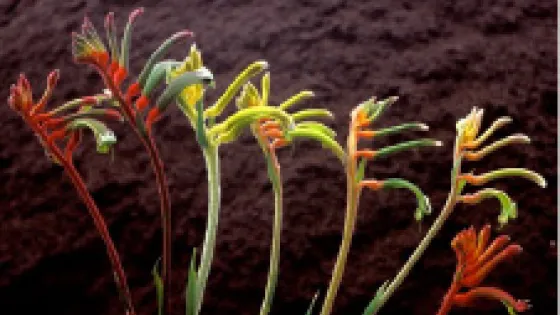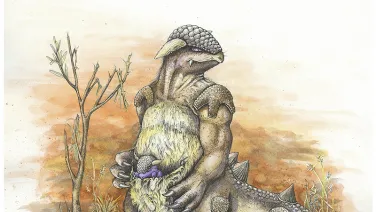E&E Seminar: Charting adaptive landscapes in speciation, conservation and horticulture
A fundamental goal of evolutionary biology is to understand the processes that contribute to patterns of genomic variation and how this relates to adaptive variation (phenotypes) and ultimately fitness.
Speakers
Event series
Content navigation
Description

A fundamental goal of evolutionary biology is to understand the processes that contribute to patterns of genomic variation and how this relates to adaptive variation (phenotypes) and ultimately fitness. The so-called adaptive or fitness landscape has been a useful metaphor to describe these connections but difficult to quantify in nature. Identifying the genetic sources of adaptive variability is also crucial for horticulture and the conservation of Australia’s unique biological resources. Here I will present a snapshot of how integrative approaches using genomics and transcriptomics, population genomics, phylogenomics, ecological experiments in nature can be used to chart fitness landscapes across evolutionary time-scales, identify barriers to gene flow and characterize adaptive variation in nature. The focus will be on flower colour variation in Antirrhinum (snapdragons) and Anigozanthos (kangaroo paws) using hybrid zones, which serve as natural laboratories to assess genetic variation, phenotypes and fitness. I will also conclude with a brief overview of ongoing efforts to target adaptive variation for climate ready restoration more broadly in a number of native Australian plants.
Biography
David is an Associate Professor in plant biology, molecular ecology and evolutionary genetics at Applied Biosciences at Macquarie University. His research centres on ‘wild plant genomics’, focusing on the processes underlying adaptation and speciation, the genetic and biochemical basis of functional traits, and applied problems in the restoration of threatened plant populations. To address these questions, he uses an integrative approach, combining whole genomic sequencing, large scale ecological experiments, quantitative genetics, eDNA, and evolutionary modelling and theory. His work has covered both model and non-model plant systems spanning several continents including North America, Europe and Australia. Other research topics include the evolutionary dynamics of hybrid zones, evolution of flower colour, plant mating systems, polyploidy, pollinator behaviour, and genetic and evolutionary rescue. Previous to MQ, he worked in research and teaching roles in Canada (University of Toronto), Austria (ISTA and University of Vienna) and Edith Cowan University (Perth).
Location
Eucalyptus Seminar Room
S205, Level 2
RN Robertson Building (46)

